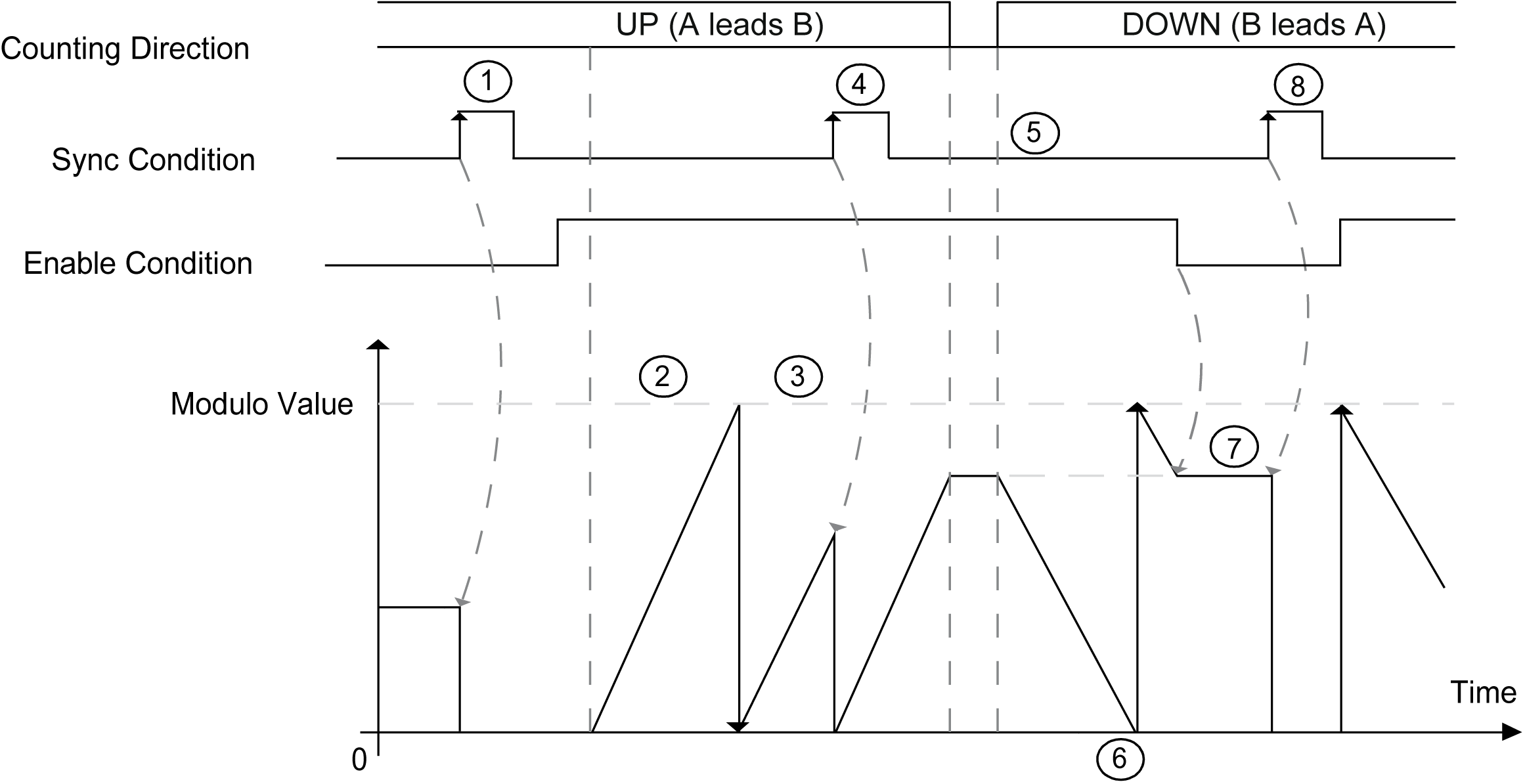Modulo-loop Mode Principle Description
The Modulo-loop type can be used for repeated actions on a series of moving objects, such as packaging and labeling applications.
On a rising edge of the Sync condition, the counter is activated and the current value is reset to 0.
When counting is enabled:
Incrementing direction: the counter increments until it reaches the modulo value. At the next pulse, the counter is reset to 0, a modulo flag is set to TRUE, and the counting continues.
Decrementing direction: the counter decrements until it reaches 0. At the next pulse, the counter is set to the modulo value, a modulo flag is set to TRUE, and the counting continues.

|
Stage |
Action |
|---|---|
|
1 |
On the rising edge of Sync condition, the current value is reset to 0 and the counter is activated. |
|
2 |
As long as Enable condition = TRUE, each pulse on A (for single phase) or each pulse pair with leading edge on signal A (for normal quadrature) increments the counter value. |
|
3 |
When the counter reaches the (modulo-1) value, the counter loops to 0 at the next pulse and the counting continues. Modulo_Flag is set to TRUE. |
|
4 |
On the rising edge of Sync condition, the current counter value is reset to 0. |
|
5 |
As long as Enable condition = TRUE, each pulse pair with a leading edge from signal B (for normal quadrature) decrements the counter. |
|
6 |
When the counter reaches 0, the counter loops to (modulo-1) at the next pulse pair and the counting continues. |
|
7 |
When Enable condition = FALSE, the pulses on the inputs are ignored. |
|
8 |
On the rising edge of Sync condition, the current counter value is reset to 0. |
NOTE: Enable and Sync conditions depends on configuration. These are described in the Enable and Synchronization function.